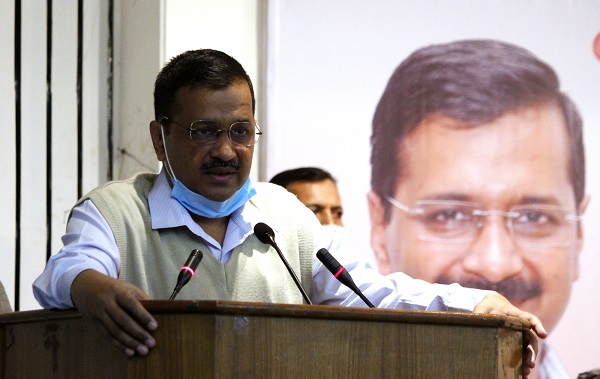
New Delhi, (Samajweekly) The deadline for redesigning of seven roads in national capital has been extended from December to March 2021 due to the pandemic, the Delhi government said on Thursday.
The announcement came after Chief Minister Arvind Kejriwal held a review meeting with PWD officials on the ongoing road redesigning project in the city along the lines of European cities.
Directing the officials to remove all obstacles under the pilot project to redesign the seven identified roads, he said that the process of appointing a consultant for the redesigning of roads is in the final stage and the PWD should complete the process soon.
The project will follow the Build-Operate-Transfer (BOT) model, and the construction company will have the responsibility to maintain the road for 15 years.
The Delhi government is working to redesign the 100 feet wide roads of the national capital on the lines of European cities.
Kejriwal had approved the project of redesigning some of the roads falling under the jurisdiction of PWD in November 2019.
Recently, the Chandni Chowk road was redeveloped as a pilot project.
The following facilities will be developed – parking for rickshaws, separate parking spaces, green belt, open spaces for public, cycle lanes, pedestrian lanes, etc. Different types of designs will be displayed on the walls by the road and if there is a park next to the road, it will not be covered by walls so that its beauty is visible from the road.
Redesigning will solve various issues through proper planning and mapping. People face issues because there are bottleneck roads, which create the problem of traffic congestion at various locations in the city, government officials said.
“The wide roads in many parts of Delhi differently turn into a narrow road, and then back into a wide road after a few km, which creates a bottleneck situation and heavy traffic at particular locations,” an official added.
The priority will be removing those bottlenecks first, for a smooth flow of traffic and an organised lane system. The second goal would be to increase the efficiency of the existing space of the roads to utilise them better.
There will be measured and planned spaces for vehicles, non-motorised vehicles, footpaths, and side-lanes. The footpaths will be widely mapped to an average of 10 feet for the convenience of the pedestrians, and redesigned and reconstructed as per a standard height for the convenience of the physically handicapped.
According the Delhi government, the project will help increase greenery, and a water re-harvesting system will be implemented in the sewer drains.
There will be separate spaces for the planting of trees on the sides of the footpaths. There will be separate parking spaces for the electric vehicles and auto-rickshaws alongside the footpath.
The slope of the roads, as well as the drains, will be redesigned to tackle the problem of waterlogging on the roads. Rainwater harvesting structures will be built inside the drainage systems to store rainwater as groundwater.
Moreover, no surface will be left unpaved to control dust, while adequate grass and shrubs will be planted on all surfaces for this purpose.









